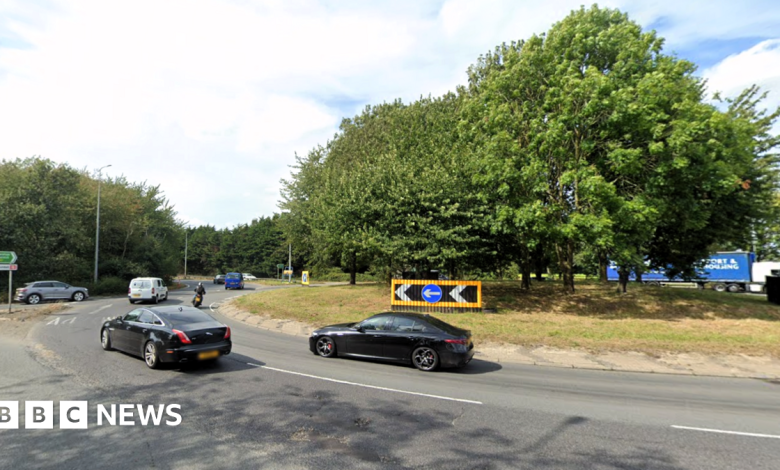A47 roadworks in Norwich postponed after disruption complaints

Road Closure Postponed: Relief for Local Businesses During Holiday Season
The planned closure of Yarmouth Road and Cucumber Lane, initially scheduled for a 10-day period in mid-December, has been postponed to later next year. This decision comes as welcome news for local businesses and residents, particularly as the holiday season approaches. The £315,000 project, funded by a developer as part of planning conditions, would have caused significant disruption during a critical time for retail and hospitality businesses. Brundall bus services will continue to operate normally, ensuring that public transportation remains accessible for residents and visitors to the area.
The postponement addresses concerns raised by local business owners who were worried about the economic impact of the closure. Jordan Holmes of Norwich Camping and Leisure in Blofield had expressed apprehension about the roundabout work effectively cutting off access to his village from both directions. This would have been particularly challenging as it followed another recent closure of the Blofield turn-off related to the A47 upgrade project. Mr. Holmes described the previous disruption as a “kick in the teeth” for businesses preparing for the Christmas shopping season, highlighting the cumulative effect of consecutive road projects on local commerce.
While many business owners welcomed the postponement, not all stakeholders shared the same perspective on delaying the roadworks. Albert Jones, managing director of Great Yarmouth Pleasure Beach, indicated he would have preferred the work to proceed as scheduled, viewing the short-term inconvenience as necessary for long-term benefit. “No pain, no gain,” remarked Jones, suggesting that temporary disruption is sometimes unavoidable for infrastructure improvements that will ultimately benefit the community and businesses. His comments reflect the challenging balance between minimizing immediate disruption and completing necessary infrastructure upgrades.
Jones did, however, emphasize the importance of better coordination between highway authorities and local businesses when planning such disruptive works. “I think the highways people should liaise with businesses about when they do this work as we’ve had a lot of disruption in the peak season,” he noted. This sentiment highlights a common frustration among business owners who feel their operational needs and peak trading periods are not adequately considered when planning roadworks. Improved communication and scheduling could potentially minimize economic impact while still allowing necessary infrastructure improvements to proceed.
The decision to postpone the roadworks demonstrates responsiveness to community concerns, particularly regarding the timing of the closure. By rescheduling the work to a less commercially sensitive period next year, authorities have shown willingness to balance infrastructure needs with economic considerations. This approach recognizes the vital importance of the pre-Christmas period for many businesses, which rely on holiday shopping to meet their annual revenue targets. The postponement gives businesses breathing room after what has already been a challenging period due to previous road closures and disruptions.
Looking ahead, the rescheduled roadworks will still provide the long-term benefits of improved infrastructure and traffic flow. As Albert Jones noted, “Long-term, nobody is going to regret these roads being improved.” The challenge remains to find the optimal timing and approach that minimizes disruption while delivering necessary improvements. The situation highlights the complex interplay between infrastructure development, business interests, and community needs. As the project moves forward into next year, continued dialogue between highways authorities, local businesses, and residents will be essential to ensure the work proceeds with minimal disruption while delivering maximum benefit to all stakeholders.








